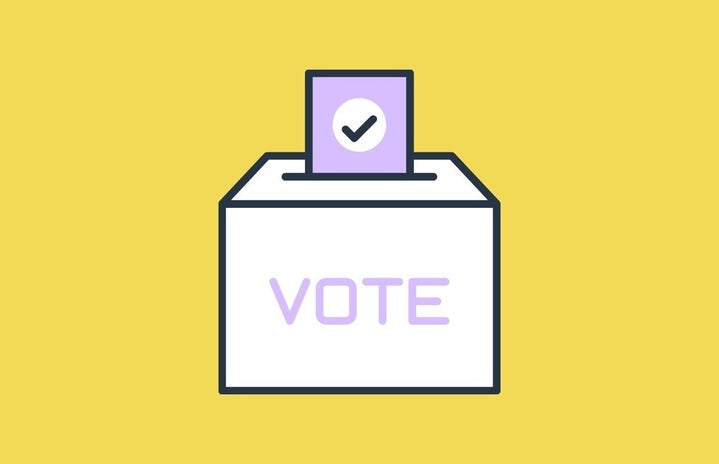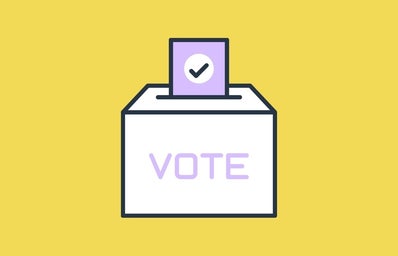On November 15, Brazilians have a scheduled appointment: to elect their future representatives to the City Hall and City Council of their cities. Normally, the first round of municipal elections happens in October, but this year, due to the coronavirus pandemic, the election was postponed. In the country, all people between 18 and 69 years old are obliged to vote. So the vast majority of the population must go to the polls and exercise their citizenship through voting, otherwise they must justify their absence and, if they don’t, a fine is charged by the Superior Electoral Court.
First of all, we need to clarify what the mayors and councilmen do. The mayor is the leader of the Executive Branch of a city. He or she must manage it, collecting, for that, fees and taxes, which must be converted into resources for the municipality, such as public works, transportation systems, education and health, for example.
The councilmen are members of the Municipal Legislative Branch, and their main function is to legislate, representing the interests of the population. To do so, they can create or amend laws that are of interest to the community in the most appropriate manner, in addition to supervising the Executive Branch.
Having clarified what the disputed positions are and what they do, we need to understand the real importance of municipal elections and why we need to vote conscientiously and responsibly, thus expressing our opinion and desire for the future of politics not only in our city, but in the whole country.

For Jaqueline Hansen, Master in Social Sciences and PhD student in Political Science, this obstructs the construction of a better and more equal society. “Brazil is a country disinterested in politics. This brings some flaws to the system. We give a lot of importance to executive positions, but we forget about the legislative. The fact that people don’t remember which candidate they voted for in the last elections, for example, is a reflection of the fact that this voter is not monitoring his representatives, and doesn’t know what is being done for the population. We should pay more attention to these positions, I am a defender of the fact that everyone should understand the role of the Legislative Branch – which is the one that dialogues with the executive and authorizes the proposals – in our democracy. When we are negligent in choosing our councilmen, for example, we are negligent with the whole politics, and we are losing as a society”.
The municipal level of our policy is the one that is most present and closest to the lives of citizens. It is up to these politicians to take care of the health, transportation and education systems that are closest to the people. So, it is of extreme importance that voters vote with conscience, because what is decided in the ballot box will impact the lives of all the inhabitants of a city for the next four years.
Hansen believes that the best way to decide who to vote for is by getting to know all the candidates, getting to know the parties – thus finding out which one comes closest to his ideology -, reading government programs, talking to experts and getting informed by the mainstream media. She also highlights the importance of being aware that these candidates will not be able to make huge changes to the system as a whole. “The system is composed of the federation, states and municipalities, and this last part is the lowest in the system. So these people are not going to be able to make big changes, and it is necessary to understand what the function of a mayor and councilman is, and thus analyze the proposal of each one to see what is feasible. There are many candidates who make promises that are not possible to be fulfilled by a politician who occupies a municipal office”.
In addition, the Brazilian political scenario is still occupied, mostly, by senior white men, who are likely to be protagonists in leadership positions. The municipal elections of 2020 have been highlighted by a reconfiguration in the profile of candidates: the number of female candidates this year is the highest ever recorded, while the number of black people running for the positions in dispute is higher than that of white people.
For Hansen, this phenomenon makes municipal elections a possibility and an opening for the construction of a new political configuration. “Municipal elections are very important for building new representatives, new political elites, raising new voices. They tend to be more representative, because they have more space for the candidacy of minority groups, such as women, black people, indigenous people, members of the LGBTQ community”. In addition, she recalls the importance of this diversity in municipal positions, as it may reflect in the future on the national scene: “A politician who becomes president doesn’t arrive from nowhere, he has passed through other political positions, participated in social movements. Municipal elections are also very important to introduce younger and newcomers to political life, who are learning about how the system works. This can slowly reconfigure the current scenario, in a way that it is more inclusive and contemplates our population that is so diverse”.
The social scientist also highlights how important it is that people have the notion that politics is not just about the election period, voting is not the only way to expose our opinions, claims and demands. But inevitably, most voters seek to engage and inform only when they are forced to – every four years -. Still, she points out the importance of social movements and of voting for candidates who participate in these groups: “Social movements are forms of political manifestation, they make a connection between society and the State. Giving priority to candidates engaged in these movements when it comes to voting makes the government closer to the varied demands. Putting these groups in the political system is putting us too. Not everyone has time to express themselves politically, so we need to outsource this to our representatives”.
Young voters, for example, often do not come from politically engaged families, and have their first contact with the political universe only at the age of 18, when the title of voter is required. Hansen suggests that the best way for this portion of the population to enter and engage naturally in certain topics is to talk to sociology professors, still in high school, and seek to discover their political spectrum. In addition, she cites the importance of the young people, who often have not yet learned how to look at the world beyond themselves, thinking of proposals that benefit not only him but society. “Another thing that is important is to look at yourself and your place in the world, but also to look to the side. If you drive, look inside the bus. Know your city, beyond the neighborhood you live in. This thought helps you to understand your position within your society, the things you have access to because of your social class. It is necessary to exercise critical thinking”.
Voting at the age of 16 is not compulsory, but anyone who wants to vote, from that age on, is already allowed. Jaqueline Hansen believes that the sooner people start voting, the more incentive they will have to actually participate in politics. “In the teenage years, we are discovering the world, relationships, and also politics and the work market. The young person who starts voting at 16 has a new opportunity to understand the system before turning 18 and this is imposed on him/her”.
Voting is essential in a democracy, it is the way the people express their opinion and political desire. In Brazil, which is a representative democracy, the system must seek to represent and contemplate the huge diversity of peoples and culture that the country has. For this, it is up to the population to decide who represents it best by voting. “It is very important to participate in the electoral process, to attend both municipal and federal elections. Voting is our way of choosing who will represent us. It is a way to make a difference in politics, to express the voice of the citizen. And it is just one way of political participation,” says Hansen.
After the elections, the winners have four years of work ahead of them, when they must put their campaign proposals into practice and serve society. There, Hansen highlights the importance of continuing to monitor our representatives throughout these years, keeping track of whether they are meeting the demands. “I know this is not simple, it requires a certain understanding and work, but the gain that we have investing in politics is very significant in our lives, because in this way we can build a more equal society,” she concludes.
———————————————————————–
The article above was edited by Gabriela Sartorato.
Liked this type of content? Check Her Campus Casper Libero home page for more!


